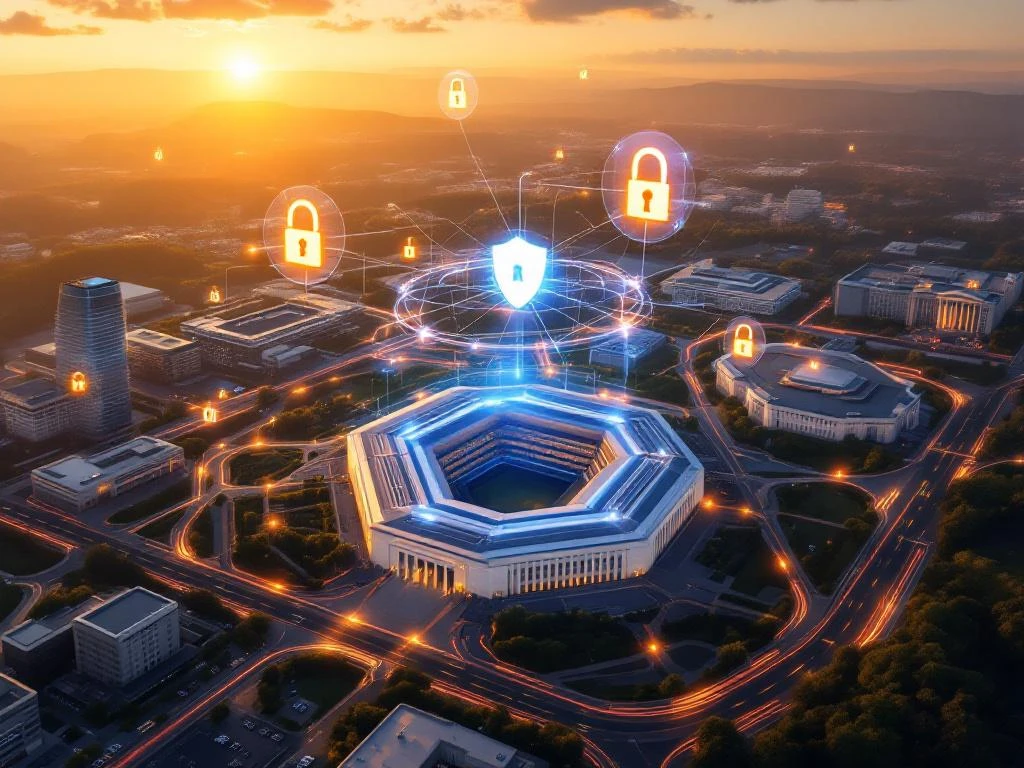

-
UK: +44 203 8876 770
US: 315 508 6500 - cybersecurity@thisisiceberg.com
-
8 Devonshire Square, London, EC2M 4YJ

In today’s cybersecurity landscape, forensic professionals are no longer just technical investigators – they’re powerful revenue drivers for security firms. With the growing complexity of digital threats, these specialists apply their unique skills to not only solve incidents but also create substantial business value. Their expertise transforms reactive security measures into proactive services that clients are willing to pay premium rates for. Understanding how forensic talent contributes to your bottom line is essential for security firms looking to grow in a competitive market. Let’s explore the various ways these professionals generate revenue and how to maximise their impact on your business success.
Forensic professionals generate revenue through several primary channels that security firms can monetise effectively. Billable investigation hours form the foundation, with clients paying for specialised expertise during security incidents. These billable hours often command premium rates due to the technical nature and urgency of the work.
Incident response retainers represent another substantial revenue source. Clients pay regular fees to ensure priority access to forensic expertise when security incidents occur. These retainers provide predictable, recurring revenue even during periods when active investigations aren’t underway.
Specialised analysis services also drive significant income. These include malware analysis, memory forensics, and advanced threat hunting—all highly technical services that justify premium pricing models. Clients value these specialised capabilities because they go beyond what internal teams can typically provide.
Data recovery and preservation services complement the core forensic offerings, particularly valuable in litigation support scenarios where maintaining evidence integrity is paramount. The combination of these service lines creates diverse revenue streams that help security firms weather market fluctuations while maximising profitability.
Beyond generating direct income, forensic professionals help security firms and their clients avoid significant financial damage through prevention. Thorough forensic work identifies the root causes of security incidents, allowing organisations to implement targeted fixes that prevent similar breaches from recurring.
This preventative value translates to tangible benefits for clients. By helping organisations avoid regulatory penalties through proper incident documentation and remediation, forensic experts directly impact the bottom line. Consider the potential cost of data protection violations, which can reach into millions—proper forensic handling can substantially reduce these risks.
Forensic professionals also protect client relationships that might otherwise be damaged by unresolved security issues. When customers lose trust due to security incidents, the revenue impact can far exceed the immediate breach costs. By enabling transparent, thorough responses to incidents, forensic experts help preserve business continuity and customer confidence.
The comprehensive reporting provided by forensic teams demonstrates compliance efforts to regulators, stakeholders, and cyber insurance providers. This documentation often translates to more favourable insurance terms and fewer business disruptions, further protecting revenue streams.
Despite their value, several obstacles prevent security firms from fully monetising forensic expertise. The most pressing is the talent shortage in digital forensics. Finding qualified professionals with the right mix of technical skills, investigative mindset, and communication abilities remains difficult in today’s competitive market.
Another significant challenge is the difficulty in quantifying ROI. Many organisations struggle to measure the financial benefits of forensic services, especially preventative work. Without clear metrics, it becomes harder to justify premium pricing or expand service offerings.
Communication gaps between technical staff and business stakeholders further complicate matters. Forensic professionals often excel at technical work but may struggle to translate their findings into business impact terms that executives understand and value.
Market education also presents a challenge. Many potential clients still view forensics as a purely reactive, post-breach necessity rather than a proactive security investment. This perception limits willingness to invest in retainers or advisory services based on forensic capabilities.
Overcoming these challenges requires deliberate strategies to bridge technical and business perspectives while demonstrating the tangible value forensic services provide beyond incident response. You can learn more about effective talent acquisition strategies to build your forensic team.
Forward-thinking security firms are transforming forensic capabilities into high-margin advisory services. Proactive security assessments represent one of the most valuable offerings in this category. These assessments leverage forensic methodologies to identify vulnerabilities before breaches occur, providing preventative value that clients willingly pay for.
Compliance readiness programs offer another lucrative advisory opportunity. Forensic professionals can help organisations prepare for regulatory requirements by implementing proper evidence handling procedures, documentation practices, and incident response protocols. These services typically command higher rates than reactive work while providing more predictable revenue.
Expert witness services for legal proceedings represent a specialised advisory offering with premium billing potential. Forensic professionals who can effectively explain technical concepts in legal contexts become invaluable assets in litigation support, intellectual property disputes, and other legal matters.
Tabletop exercises and breach simulation services enable clients to test their response capabilities in controlled environments. These services blend technical forensic knowledge with strategic advisory value, creating offerings that appeal to security-conscious executives.
By packaging forensic knowledge as consultative services, security firms can increase average revenue per client while differentiating themselves in a crowded marketplace. These advisory relationships also tend to be longer-term engagements, improving client retention and lifetime value.
Beyond their technical contributions, forensic experts can become powerful differentiators in competitive sales processes. Their specialised knowledge adds technical credibility during client pitches, particularly when selling to security-conscious organisations or regulated industries.
Forensic professionals can significantly influence thought leadership content, creating authoritative whitepapers, blog posts, and research that demonstrates the firm’s expertise. This content attracts prospective clients while positioning the firm as an industry leader.
Speaking engagements at industry conferences raise the profile of both the individual expert and the security firm. When forensic professionals share insights at these events, they generate qualified leads while building the firm’s reputation.
Case studies (appropriately anonymised) showcase the impact of forensic work in real-world scenarios. These narratives help prospective clients understand the value proposition more concretely than technical specifications alone.
By strategically involving forensic experts in business development activities, security firms can accelerate sales cycles and improve win rates. Their ability to speak authoritatively about complex threats and response methodologies builds the trust necessary for successful client acquisition.
Quantifying the return on investment from forensic operations requires thoughtful metrics that capture both direct and indirect value. Case resolution efficiency provides a foundational measurement—tracking metrics like time-to-resolution, case backlog reduction, and successful attribution rates demonstrates operational effectiveness.
Client retention rates offer insight into satisfaction with forensic services. High retention indicates that clients perceive value in the forensic work performed, while improved retention rates after implementing forensic services highlight their business impact.
New business influenced by forensic capabilities provides another crucial metric. Tracking how often forensic expertise helps win new clients or expand existing relationships quantifies their business development value.
Incident recurrence rates measure preventative effectiveness. When the same type of security incident stops occurring after forensic remediation, it demonstrates the tangible value of the forensic team’s work.
Creating a balanced scorecard that combines these financial and operational metrics provides security firms with a comprehensive view of forensic ROI. This approach helps justify continued investment in forensic capabilities while identifying opportunities to improve service delivery and profitability.
| Metric Category | Example Measurements | Business Impact |
|---|---|---|
| Direct Revenue | Billable hours, retainer contracts, service fees | Immediate financial contribution |
| Risk Reduction | Avoided penalties, reduced insurance premiums | Cost avoidance and savings |
| Business Development | New clients influenced, expanded engagements | Revenue growth and market expansion |
| Operational Efficiency | Time-to-resolution, successful case closure rate | Increased capacity and resource optimisation |
Emerging technologies and regulatory trends are creating exciting new revenue potentials for forensic professionals. Cloud forensics represents one of the most promising growth areas, as organisations increasingly store critical data in cloud environments. The unique challenges of collecting and analysing evidence across multi-cloud infrastructures require specialised expertise that commands premium rates.
IoT investigations present another expanding opportunity. As connected devices proliferate in both consumer and industrial contexts, forensic experts who can extract and analyse data from these devices will be increasingly valuable. This specialised capability allows security firms to serve emerging markets like smart home security and industrial IoT protection.
Regulatory requirements continue to evolve across different regions, creating demand for compliance-focused forensic services. From GDPR in Europe to industry-specific regulations worldwide, organisations need forensic expertise to demonstrate compliance and respond appropriately to potential violations.
The convergence of cybersecurity with physical security systems also opens new service opportunities. Forensic professionals who can investigate hybrid incidents involving both digital and physical components will find growing demand for their unique skill set.
At Iceberg, we understand the vital role forensic professionals play in security operations. Our specialised recruitment approach helps connect organisations with elite forensic talent that can drive these revenue opportunities forward. We focus on finding professionals who combine technical expertise with business acumen—the ideal profile for maximising revenue contribution. If you’re looking to enhance your security team’s capabilities, contact us to discuss your specific requirements.
By strategically developing your forensic capabilities and positioning them as revenue drivers rather than cost centres, your security firm can achieve sustainable growth while delivering exceptional value to clients. The future belongs to security firms that recognise and leverage the full business potential of their forensic professionals.
If you are interested in learning more, reach out to our team of experts today.













